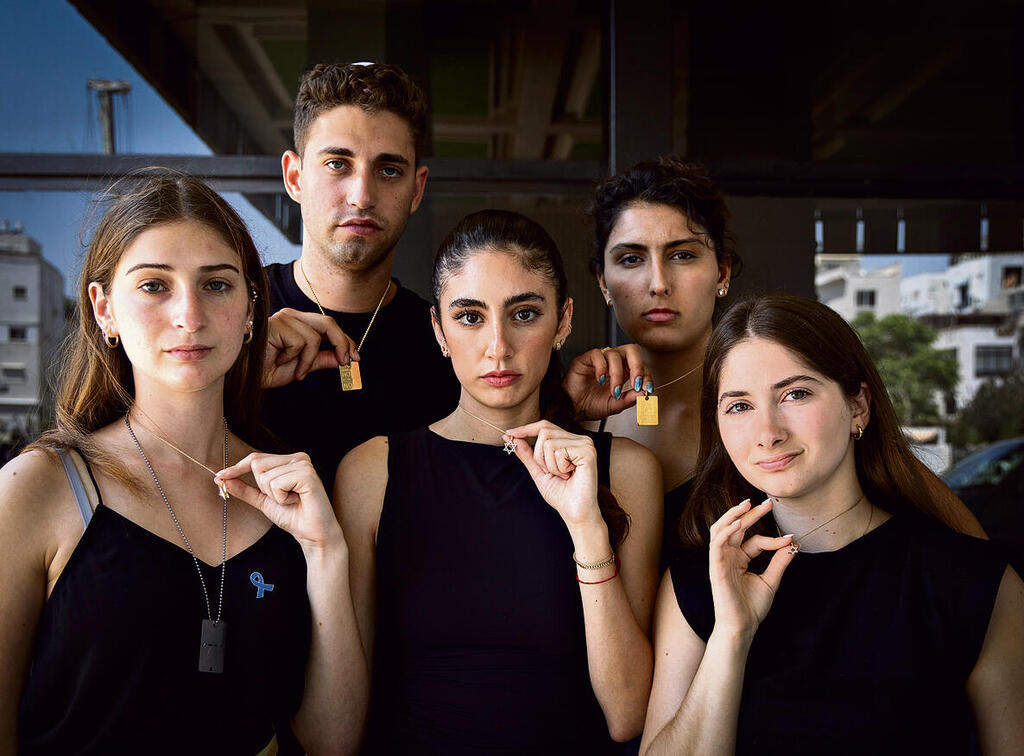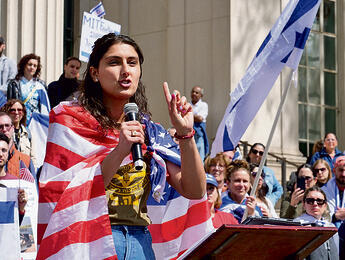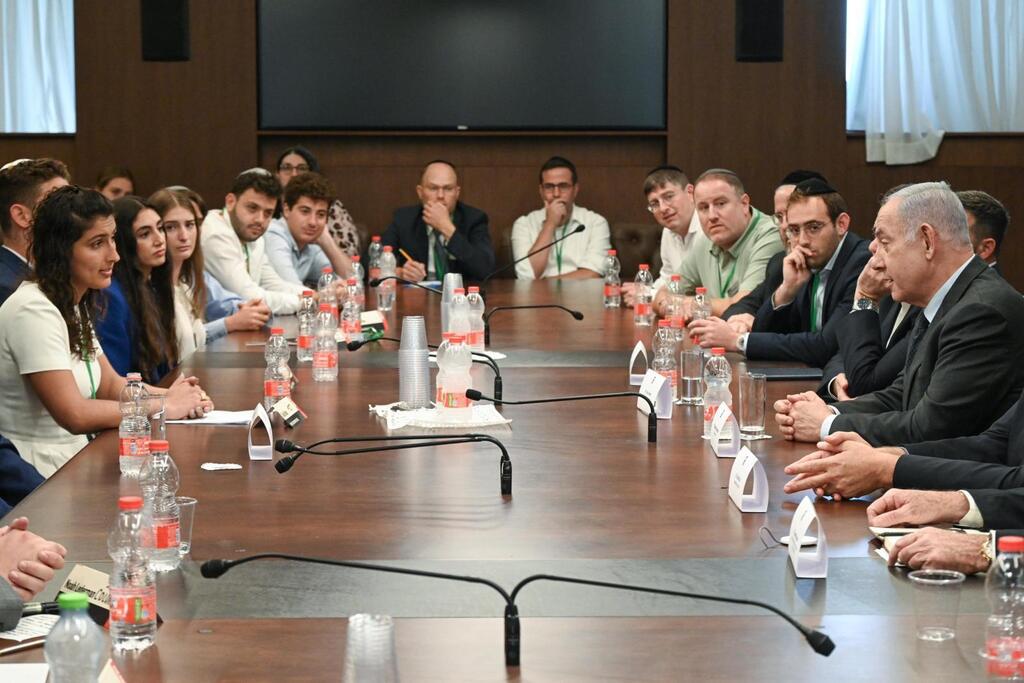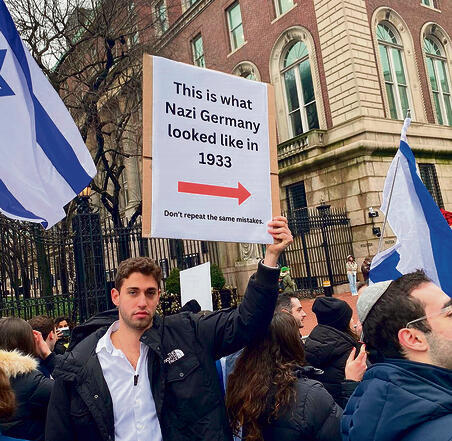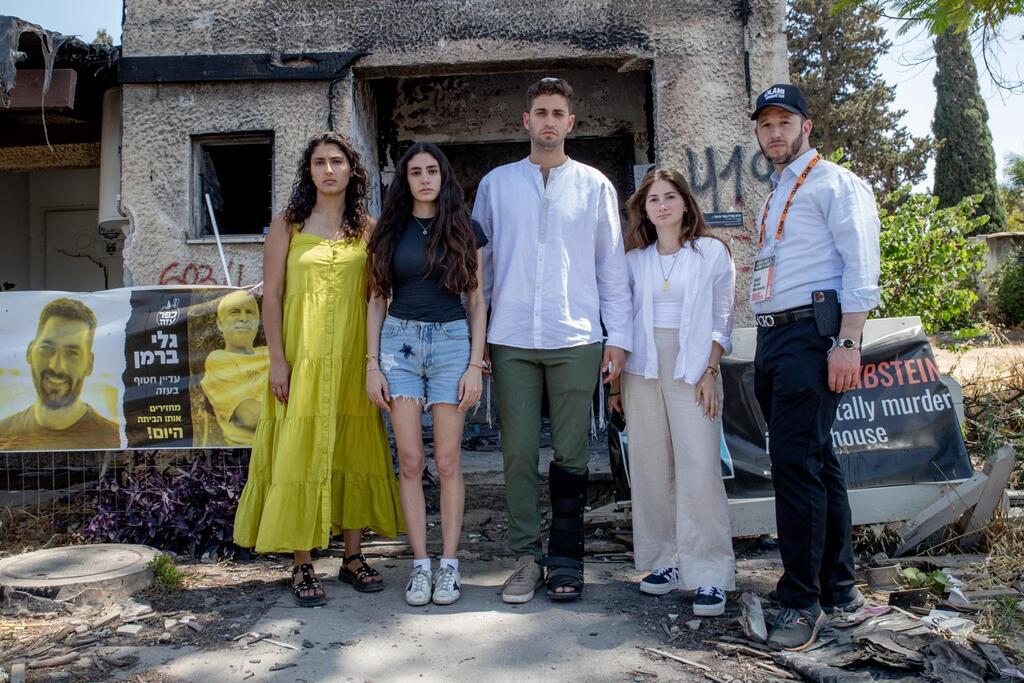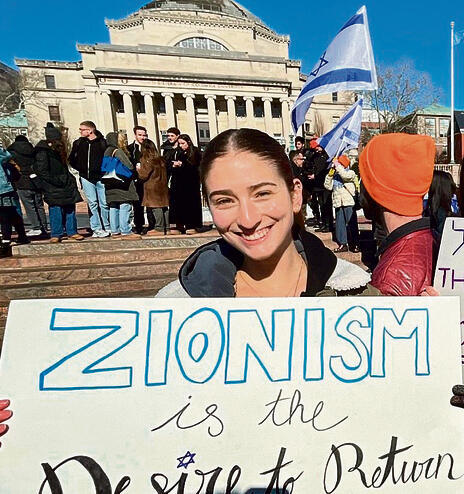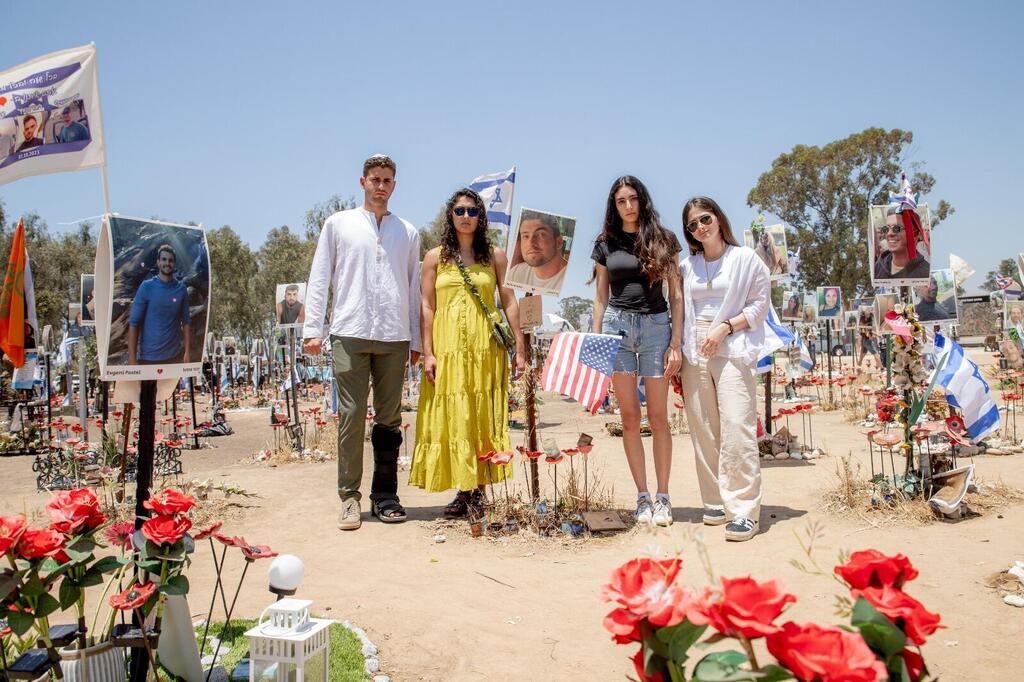Getting your Trinity Audio player ready...
"A woman ran at me screaming, 'f*** you, Jew' and I reported it to the school. I made it very clear how I don't feel safe on campus. Tulane University's response was to label 'f*** you, Jew' as political speech," says Yasmeen Ohebsion, a student at Tulane University in New Orleans (one of the universities with the highest percentage of Jewish students in the U.S. – about a quarter of the students there are Jewish).
"So at Tulane University 'f*** you, Jew' is political speech but 'f*** you, gay' would probably lead to expulsion. 'F*** you, black;' forget about it. You're not going to have a career. You're not going to be able to talk to anyone. You'll be kicked out. Nobody will ever talk to you again. You'll be canceled. Your life is over. Goodbye. You're done. So that is the difference. If you're Jewish, people can do whatever they want, including physically attacking you, and still, the university does nothing.
"It's watching my friends be beaten with a metal microphone and having all these bones and their faces broken. The ambulance comes, and before the ambulance can even move this Jewish student from the street into the car, there is a group of 10 maintenance people scrubbing the Jewish blood off of the street to make sure that there's no evidence, there are no pictures and I have the pictures of the blood. Same thing as when someone says 'f*** you, Jew' and they say 'here's a link to three sessions of free therapy. You go fix yourself.'"
"I hope you get gassed out in the basement of AEPi (a Jewish fraternity). P.S. What is your Auschwitz prison number?" Daniella Ludmir, a student at the University of Michigan, shows me a message she received. Signed: Adolf.
"I know that at MIT and also at Stanford, the school administrations paid for safe housing for Jewish students who were threatened and harassed to such an extent that their physical safety was at risk if they stayed in their dorms. They're putting Jews in separate housing to protect Jewish safety, but they're not stopping the bullies," says MIT student Talya Kahn.
"[The University of Michigan] president sent emails to the entire university right after October 7 saying standing up to terrorism should not be controversial at the University of Michigan. There was a protest at his home," says Ludmir.
"Even though we received public support from our administration, and this is not something that's common at every university, Jewish students still feel unsafe to walk on campus because they see a giant banner all across the center of campus saying 'Long live the Intifada.' What are they doing to make us feel safe?
Chloe Katz, a student at Columbia University, says she's been told that the sexual violence committed by Hamas terrorists against Israelis on October 7 was justified. "I'm a helpline volunteer for sexual violence response at Columbia and I'm also part of all of these Israeli activist groups. And so when my group had the idea of publicizing the fact that these testimonies of sexual violence from October 7 and in captivity are being denied or pushed aside, I went to my boss in sexual violence response, asked her to collaborate on an event together and gave her our idea. They initially said 'yes, that's great,' And then they stopped responding to me.
"Instead, we did a silent protest. My friends and I joined arms in front of the library, put duct tape on our mouths and held up signs that said 'Hamas weaponizes sexual assault' and 'rape is not resistance.' They screamed at us, spat at us, threatened us. But we didn't budge."
"I want to paint the picture for Israelis of what it's like to be a Jew on campus right now. It feels post-apocalyptic," says Columbia student Eli Gelb. "When you walk down the street next to Columbia, you see torn kidnapped posters. You see the pictures with swastikas drawn over them. Penises vandalizing the babies on the kidnapped poster. Every single spot is covered with stickers and posters for Palestine. 'Free Palestine,' 'Zionism is terrorism' and 'Zionism is Nazism.'
"When you walk onto campus, it is covered with people wearing keffiyehs, it is inescapable. You go onto campus during the encampment, they're shooting flares, they're starting fires, they're rioting and you see the heat in their eyes. And this isn't a small number. It's hundreds of people gathered every single day.
"There are specific nights when you walk around and it is anarchy. Zero public safety. The entire area where Jewish students live is smothered with adults running around, ripping the flags off of the backs of Jewish students, spitting at us, throwing liquids at us, and I was physically chased off of campus with the rabbi and told to go back to Poland. I was called 'Al-Qassam's next target.' But this is in the hundreds, and that's what I don't think they really understand. We're small but we're powerful. We're not going anywhere."
"I've received a lot of death threats," says Ohebsion. "We wake up, we walk to campus and people scream at us 'murderer' or 'Zionist pig' or whatever slurs, and then you go to class and see people with keffiyehs everywhere you go. It's an everyday problem. You get to class and your partner won't work with you because you're a Zionist or you either have to worry about not mentioning Israel in your paper because you're scared to fail. These experiences impact your grades."
"It's exhausting," adds Ludmir. "Everywhere you go, you see it. Even when you're in the silent room at the library where nobody can say anything, they then open their laptop and their laptop is covered in stickers about how 'Zionism is Nazism' and 'from the river to the sea' and and 'there is only one solution Intifada revolution.' I'm a neuroscience student; I want to learn biology and it's hard when you hear 'Intifada revolution' being chanted by hundreds of students inside university buildings."
Uncle murdered in Kibbutz Be'eri
Yasmeen, Chloe, Talya, Daniella and Eli are part of a delegation of about 20 American Jewish students who recently visited Israel. They toured kibbutzim near the Gaza border, visited the Nova music festival site, met wounded soldiers in hospitals, heard stories of heroism and capped off their visit by meeting Prime Minister Benjamin Netanyahu and other politicians.
I met them on the final day of the trip, organized by Olami, which has been active on campuses in the U.S., Latin America and Europe since 2012. Despite having seen countless videos and read numerous reports on campus protests and rising antisemitism, hearing these firsthand accounts is chilling. They show me terrifying videos of masked mobs storming classrooms, riots, screenshots of threats they’ve received and more.
I’ve always felt that antisemitism was like water to a fish—ever-present but less visible to me, growing up in Israel, where I felt like a fish in an aquarium, protected from the open sea's dangers.
This group is made up of activists. Yasmeen Ohebsion launched an initiative of roundtables on antisemitism, organized a shipment of supplies for the displaced and initiated a petition from Jewish students sent to Congress. Two of her cousins are currently fighting in Gaza.
Ludmir's uncle, Dr. Daniel Levy Ludmir, was murdered in Kibbutz Be'eri on October 7. She, too, is a medical student, at the University of Michigan, and organized a war-awareness event attended by 1,000 people, with another 4,000 joining online. In response to her uncle’s death, she says she was met with hateful comments.
Eli Gelb, from Columbia University, regularly stands proudly with an Israeli flag in front of pro-Palestinian protests, often enduring violence. Chloe Katz, also from Columbia, organizes rallies and educational events.
Talya Kahan from MIT was born to a Jewish mother and a Muslim father but was raised and educated as Jewish, never doubting her Jewish identity. “I am a Jew who knows where my land is and who my people are. I may not have family here, but I am indigenous to this land. This is my place. Read the Bible, man.” She founded the MIT-Israel Alliance and serves as its president.
For me, Judaism is second nature. For them, it's a daily battle. They are all in their early twenties. Except for Kahn, they all have family in Israel, and most have visited many times, including through Birthright programs.
I ask them how they perceive our emotional state during this visit, and I'm surprised by their answer. About a month ago, I met a friend who had just returned from living abroad, and he said we all look as if we’ve been run over by a bulldozer—worn out, tired, angry and impatient. But to this group from the U.S., we come across differently.
“My first thought in the morning is Israel and the last thing I think about before I go to sleep is Israel,” says Ohebsion. “There's no real way to know how the people are doing until you come here to the Land of Israel and see it and feel it. I really pictured Israel as a much more fractured place after October 7 than it is. I think that I felt this incredible unity among Jewish people who care about this cause.
“It's been hard to go to the kibbutz, to hear people's stories, but it's also been reassuring to see that the shook (market) is still full of people. People are still going to pubs in Tel Aviv, sitting on the beach. And as Jewish people, that's a mitzvah."
"When you see things like that, you understand that this land is beautiful. This group of people put their lives on hold and want to give back to this country. It feels like if I'm going to live here, I need to be part of this," says Katz, who plans to make Aliyah next year.
Kahn: "Being in Israel is the first time since October 7 that I finally felt like I can finally take a breath and like feel comfortable and not have to worry that there's going to be some crazy rioters. Like when I turn the corner, they're yelling 'free Palestine' and 'bomb Tel Aviv' wearing keffiyehs. Even though I obviously didn't have the same October 7 experience as the people here, I feel so close with everybody, even the people I don't know. I feel very connected to everybody and we're all going through this together. Just having other people who understand, that you don't have to explain to them, it's a comforting feeling. Although the stuff that we're experiencing on campus is not at all the same level of danger that these people are going through. But we've all had our lives totally changed and turned over."
Apartheid wall
They explain that they witnessed the rise of antisemitism on campuses long before October 7. "A lot of it was in academia," says Ohebsion. "Professors use texts that are very antisemitic. Students set up a table, trying to explain why Israel is an apartheid state. People making little comments or posting things on social media. But there was one specific incident that triggered my movement when Kanye West went on that crazy rampage calling for 'death con 3 on Jewish people' (an apparent reference to the U.S. defense readiness condition scale known as DEFCON) and after that, a girl at my school who had a Jewish roommate wrote this article saying Kanye West was right about Jews and that Hitler should have finished the job. The Jews are Nazis.
"I heard from her roommate shortly after that who felt very unsafe and Tulane has very strict policies about speech. We asked why they weren't taking action and the response was hollow. They couldn't give us a reason, but they also didn't do anything about this. So that made me very angry. It made me feel like we aren't worthy of their protection."
"We have also had plenty of antisemitism at Michigan before October 7," says Ludmir. "At least once a year, we would find swastikas either near Jewish buildings like Hillel, Chabad or near Jewish fraternities; buildings that have a Jewish affiliation. There was a big pro-Palestine crowd and community there years before I was a student there, they tried to pass BDS resolutions before I was a student there.
"On October 4, we had what they call their annual demonstration called 'Apartheid Wall' where they share stories of their martyrs and celebrate people who are members of internationally recognized terrorist groups. And they praise them and they talk about how amazing the work that they do for the liberation of Palestine.
"Since October 7, the proportion has changed. We used to have maybe one protest a month, now we have more than one a week. We saw celebrations of October 7 on campus the next day, before Israel had even fully regained control of the situation."
Kahn describes the "Apartheid Wall," a mobile exhibit that has been traveling between U.S. campuses since 2016—essentially a mini version of the West Bank separation barrier.
There’s an argument that we need to distinguish between antisemitism and criticism of Israeli policy. After all, even in Israel, some oppose the occupation, and that's acceptable.
"One of the important things," says Ludmir, "is that it's hard to differentiate the two because it's not being critical of the Israeli government, it's rewriting Jewish history to erase any connection to Israel and completely delegitimizing the state, essentially saying that Israel should not exist at all."
"I think that this is a very important point in America," Kahn says. "It's very ingrained in programming, called Diversity, Equity and Inclusion or DEI. Part of that programming gives education about black history and anti-black racism, LGBTQ communities, everything including sizeism discrimination about being fat or skinny, ableism, discrimination about being disabled, and Jews are left out."
They show examples from other universities as well. True, it’s not happening at every university in the U.S.—but so what? These are elite institutions. If the mighty have succumbed how shall the weak emerge unscathed?
"I'm the graduate student president of the MIT Israel Alliance," says Kahn, "an organization I founded with a bunch of other students right after October 7 because we didn't really have an Israel organization.
"We did a poll of all the Jewish students in our club, and we have about 150-200 active students. Then we also have faculty, postdoctoral students, staff and alumni. We're about 425 people in total. We polled these students asking them a bunch of questions, among which were 'Have you changed your behavior in any way since October 7' and 70% of people said that they changed their behavior or changed how they spoke with non-Jewish people because they were afraid of antisemitic attacks. Putting a hat over your kippah, tucking in your tzitzit, not wearing your star of David necklace, not telling people that you're going to Shabbat on Friday night, just saying you're busy. That's crazy.
"MIT gives you harassment training. Everybody's required to do harassment training at the beginning of the semester so you can have ID access to the building. In this harassment training, it says that if you deadname somebody, when you call a trans person by their previous name, that is considered harassment.
"Fast forward to the congressional hearing, where my president, Sally Kornbluth, was asked 'Is calling for the genocide of Jews considered harassment,' and she didn't have a clear answer. It depends on the context. These groups are being treated differently than the Jewish groups. They're being treated like they don't have any of the rules apply to them, and so they act with impunity, they just do whatever they want because they know the administration isn't going to enforce the rules, so they interrupt classes, they bully people in front of the campus police, professors harassed Jewish students in class online. All of these things get reported."
Talya Kahn from MIT: "These people are indoctrinating the next generation of American voters into hating Jews, Western values, democracy and supporting deglobalization, Intifada and pushing Sharia law into the West. It doesn't make any sense to me. It's very scary, especially in the wake of the upcoming elections, and we're going to see people be very hateful, very violent. I think we're all very scared for the future of America and especially America's relationship with Israel."
"I have a very good friend who was in a writing class where the focus was on racism. She introduces herself and says she is part of the dual degree program with Tel Aviv University. After this, they break into pairs in order to discuss a reading on sexism in the 18th century and my friend's partner looks her in the eye and says 'I just want to make it clear that the rapes that occurred on October 7 are justified because Israel oppresses Palestinians.'
"The professor was right next to them and heard this happen and said nothing. The reason I know this story is because she told it to the dean and president of our school. The president looked at her and said that's 'abhorrent.' So she recognizes that this is horrible, but then what she presents in front of Congress a week later she says 'I think it's personally abhorrent' but they're not acting. It's all lip service."
"In the last data collection that I did, 55% of Jewish students on Tulane's campus indicated that they felt physically unsafe or extremely unsafe going to school," says Ohebsion. "I've been fighting this battle since long before October 7 and I think that I could really feel the antisemitism under the surface and now people have an excuse to broadcast it and show it to the world. I've been saying that Israel is so important, and I've been advocating for Israel for so long and then October 7 happens and it's kind of 'I told you so.'"
"These people," says Kahn, "are indoctrinating the next generation of American voters into hating Jews, Western values, democracy and supporting deglobalization, Intifada and pushing Sharia law into the West. It doesn't make any sense to me. It's very scary, especially in the wake of the upcoming elections, and we're going to see people be very hateful, very violent. I think we're all very scared for the future of America and especially America's relationship with Israel."
We've heard and read numerous reports about what's happening on campuses. What aren't we being told?
"There's this narrative that Jews outside of Israel are hiding in their rooms, and when they go out, they're hiding their Judaism. There are people like this, as was conveyed by the statistics that they found, but it's also really important to know that there is a strong, loud, proud population of Jews who are making sure their voices are heard at every protest," says Ludmir.
Gelb, Kahn and Ohebsion concur. "We're not people who cower in fear. We don't just break down and stop our lives," Gelb adds.
There's a hard core, no doubt, but it's small. At Tulane University, for example, there are 2,500 Jewish students—so many that it's nicknamed "Jewlane"—making up about a quarter of the student body.
However, an average protest draws only around 150 participants, and no more than 10 students are actively involved in organizing initiatives. The rest are either afraid or simply not interested.
The percentages are not significantly different at other universities. Gelb and Katz say that it was easier to organize large demonstrations at first, but momentum is fading and participation is dwindling.
“Many students don’t join our protests because they don’t want to be filmed,” says Gelb, showing a video of masked protesters wearing keffiyehs filming the Jewish demonstrators—not exactly discreetly."
Have you ever considered giving up?
"No," they say resolutely. "I'm making Aliyah in a year," says Katz. "I didn't think that I would be an activist. I said, 'I'm leaving. If I can keep my head down, I can get out.' But that didn't even cross my mind after October 7. It's important for the people in the Diaspora to get involved and use that time wisely.
Between Kfar Aza and Nova
The delegation’s visit lasted five days. They visited the Gaza border region, the site of the Nova music festival massacre, hospitals and more.
What impressed you the most?
"We went to Kfar Aza, Nova and Be'eri," Gelb says. "Most of us in America have been waiting for months to finally see it."
"Personally, one of the things that really struck me," says Ludmir, "is that again we see Israelis going out and celebrating, living their lives."
They're not celebrating, they're repressing.
"Israelis are trying to continue their lives as much as they can and we almost forget that we're still at war."
Kahn was particularly impressed by a young man she met who, on the morning of October 7, dropped everything, took a gun and drove to the Gaza border region, rescuing 150 people from Nova. “He didn't have to go but he went back for more. This is why keep fighting. We all have to be fighters. We all have to be strong,” she says.
The delegation also met with President Isaac Herzog, Prime Minister Netanyahu, Knesset Speaker Amir Ohana, Diaspora Affairs Ministry Director-General Avi Cohen, Ministers Bezalel Smotrich and Amichai Chikli and others.
From the stories, it sounds like they were given the full treatment, just like the rest of us. The meeting with Netanyahu was recorded and posted online (incidentally, the next day, a petition was circulated at MIT calling for Kahn’s suspension due to the meeting).
The prime minister was the last to enter the room, and everyone stood up. He was quick and concise, sharp and fluent—a real charmer. “Where are you from?” he asked one of the participants, like in a performance. “MIT,” she replied. “Oh, what a pity,” he said.
From what I gather, Netanyahu gave them the full show, which still seems to resonate with American Jews in their 20s. They even asked him for autographs.
So, what did you think of our leadership?
They say everyone was enthusiastic and very supportive. "Most of the leaders we met with encouraged us in this fight against antisemitism and spoke about supporting and backing us," says Katz. "Something we talked about a lot was increasing direct access to communication by having students like us in the United States have a direct connection to Israelis."
"I think Smotrich was very passionate," says Ohebsion. They show me a video where everyone is seen singing Am Yisrael Chai.
"Netanyahu said to us that it's not only the government of Israel, it's the government of the Jewish people," says Ludmir. "After getting so little help from the administration of our schools, who are technically the ones who are supposed to protect us in our small environments, we find out that there's a government on the other side of the world that's actively fighting a war and he's saying to us that he's our government too, that he cares about this issue."
I broached the criticism of the government's handling of events leading up to, during and following the events of October 7. The group looks at me ill at ease.
"We don't agree with all of these people politically for sure," says Kahn. "But at this point, we have to remember that this is about global Jewish unity. These people don't care if you like Netanyahu or hate him or if you have nuanced opinions about whatever policy on the war. They don't care about that. They just care about is the State of Israel going to exist or is it going to be destroyed. We all went into this not even acknowledging that they are political figures. At the end of the day, our job was to share our personal stories of what actually happened and have a conversation about what we can do as a global Jewish community in order to fight this threat against all of us."
8 View gallery
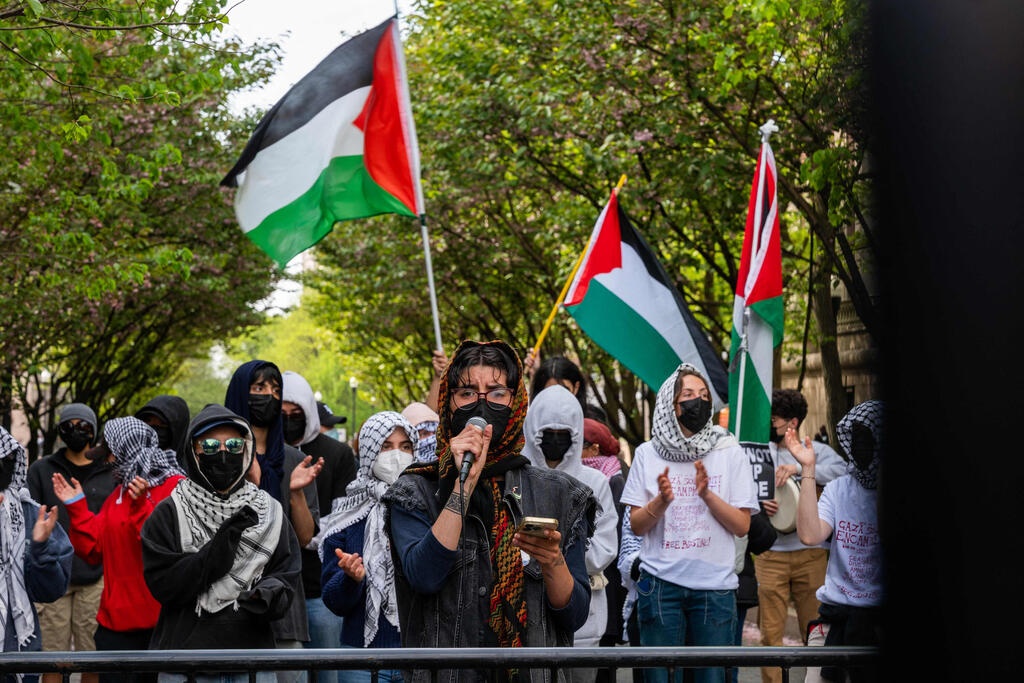

Pro-Palestinian demonstration at Columbia University
(Photo: Spencer Platt / Getty Images North America / AFP)
What are your expectations from the government or the State of Israel?
"I think nobody has a plan," says Gelb. "What we're here for is to get connected to the right people for advice or resources that can be shared, ideas exchanged, figure out the best way for us to help the mission."
"Opening the lines of communication," Kahn says. "Over the summer, something like 3,000 college students in Michigan who are anti-Israel had a big event in order to train these kids how to be even more aggressive on campuses and we know that in the fall, especially leading up to the elections where we already know there's going to be so much divisiveness and polarization, they're going to ride this wave of hate and make it even stronger with this anti-Israel propaganda, sentiment and aggression. We need to have people to communicate with, We really want to bring Israeli soldiers or survivors of Nova to campuses to help us."
"This trip was able to connect us to each other," says Katz. "I had never met Yasmine or Talya before. I only knew the activists at Columbia. So we're already connected and we're strong, a network of Jewish activists. Students for Justice in Palestine and Jewish Voice for Peace, they're already national, they have that connection. So it's time for us to do that.
"I understand that they are also the Israeli government and so we're not the focus, but we just want to be on the radar and what I was very impressed by was noticing that we were indeed on the radar and they did not dismiss us the way that we've been dismissed by our administration and by seeing a lack of action."
From the stories you’ve shared, it seems to me that this isn’t just a matter of public relations. The issue runs much deeper.
"I tend to agree", says Katz. "It's not an educational issue. If you prove it's not genocide, for example, you don't change their minds. They also have a policy of non-engagement, so they won't speak with somebody. They don't look at pro-Israel people, they act like you're invisible."
"Hasbara is not a silver bullet," says Gelb. "In America, the feeling on the ground is that nobody has the solution. In Israel, they say you have to control the conflict. You cannot solve it, you cannot win it. You just need to manage it. So hasbara is one piece of the puzzle and numbers is another."
What do you need?
“We need people to stand with us.”
If this is a numbers game, we’re in serious trouble.
“That’s how it’s always been throughout our history.”
“And we’re still here,” says Katz.
First published: 03:21, 09.22.24



